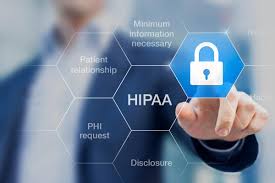Balancing Innovation and Ethics – AI’s Role in Healthcare Marketing
Mmesooma Ejike
Staff Writer
Modern Challenges in Healthcare Ads with the explosion of digital media, the way we encounter advertisements has transformed dramatically. While the average person in the 1970s saw between 500 to 1,600 ads daily, today’s consumer is bombarded with up to 10,000 ads. This shift towards digital media is not just a trend, but a necessity. Effective healthcare marketing now revolves around crafting engaging media and harnessing patient stories to build an online presence. The health sector, a critical component of public welfare and research, has embraced these innovations to elevate the standard of care. With this, we have seen an increase in direct-to-consumer advertising (DTCA). This surge in digital advertising has led to stricter regulations, particularly in the realm of prescription drug ads. These ads are among the most regulated due to their direct impact on health and safety.
The Food and Drug Administration (FDA) specifies the information that prescription drug advertisements must include. These requirements are that, at least one of the drug’s officially approved uses, its generic name, and a full disclosure of all associated risks must be stated. However, the administration provides clear criteria on what medical marketers are not required to include in their advertisements. Some of these exclusions include the drug’s cost, the availability of generic, cost-efficient alternatives, possible lifestyle changes as effective alternatives or complements to the medication, and similar versions with fewer risks. With these exclusions in mind, AI could help bridge the gap between regulatory requirements and comprehensive, transparent information for consumers.
AI’s Role in Medical Marketing
AI is transforming ad targeting and personalization across various industries, including healthcare marketing. By analyzing vast amounts of data, AI enables personalized experiences tailored to consumers’ medical needs, preferences, and interactions with healthcare services. This approach enhances the relevance of information, creating a more engaging and customized patient journey. Notably, 88% of marketers leveraging AI technology say it has “helped them personalize the customer journey across different channels.” With AI’s capability to analyze data from previous ad campaigns, healthcare companies can better understand which messages resonate with different audience groups, improving both targeting and ad effectiveness.
Prescription drug advertisements primarily aim to educate the public, particularly patients, about treatment options for specific conditions. By showcasing the advantages of their medications, pharmaceutical companies boost awareness among potential patients and healthcare providers. Effective marketing goes beyond individual products, playing a key role in broader health education. For example, during the early distribution of COVID-19 vaccines, medical institutions took to various digital platforms to quickly share important information with patients. This approach not only raises awareness of specific treatments but also highlights how marketing can manage public health communication and ensure essential information reaches those who need it most.
While the law requires that risks be explained, however simplifying scientific and medical terms without distorting their meaning can sometimes be difficult. In these cases, AI can assist by analyzing large volumes of patient data to customize the messaging, making it more relevant to specific audiences. AI can adjust language for different demographics, enhance clarity while preserving accuracy, and even predict which groups may be more receptive to particular treatments. For instance, Pfizer has adopted AI tools to enhance their marketing strategies. They utilize a system named Charlie, which is designed with validated content and targeting frameworks. This method enables Pfizer to provide highly personalized messages to various audience groups, drawing on a more nuanced understanding of consumer habits. This example demonstrates how AI can leverage patient data to customize marketing content, both improving engagement and relevance and ensuring that critical information is both clear and accurate.
Pharmaceutical companies are not obligated to disclose the cost of the medication or the availability of cheaper alternatives. This omission can be significant for many patients. Researchers discovered that 30% of individuals taking four or more medications struggle with the cost of their prescriptions, while only 20% of adults taking three or fewer medications face the same issue. By leaving out this crucial cost-related information, many consumers may be unaware of affordable or generic alternatives that could ease their financial burden. Currently, AI can help bridge this gap by delivering more personalized and transparent information regarding the cost of medications and alternative treatments. For instance, GoodRx is actively using AI to lower prescription costs for patients. By analyzing extensive drug pricing data, AI helps find the best deals and offers personalized medication suggestions tailored to individual user profiles and health details. In the future, developments may prompt a future where AI-powered systems can help link patients to local drug assistance and co-pay assistance programs that may be available to them. “By expanding income eligibility for prescription drug assistance, hearing aid assistance, and utility assistance programs for older adults,” stated Governor Phil Murphy, “we are delivering much-needed relief to families throughout our state.” With a mission to increase their availability, he believes people should not have to decide between going without or cutting back on their medications.
Additionally, pharmaceutical ads are not obligated to mention lifestyle changes, like diet, exercise, or stress management, that could serve as alternatives or complements to medication. As a result, patients may lack a complete understanding of their available treatment options. AI has the potential to address this issue by providing personalized health recommendations based on an individual’s medical history, habits, and preferences. By analyzing large sets of patient data, AI could pinpoint those who would benefit from lifestyle interventions, such as dietary adjustments for diabetes or exercise programs to improve heart health. It can also create tailored health plans that incorporate lifestyle changes alongside medication, offering a more holistic treatment approach. This empowers patients to make informed choices, decreasing dependence on pharmaceuticals and encouraging overall well-being.
Privacy and Ethical Concerns
The challenge is that for AI to deliver valuable insights, it needs to first gather a significant amount of patient data. This issue is closely connected to ongoing discussions about the Health Insurance Portability and Accountability Act (HIPAA) and the confidentiality between doctors and patients. HIPAA requires strict protections to ensure patient information is only used for approved purposes, such as treatment, billing, or healthcare operations. However, the use of AI in healthcare marketing raises concerns that patient data might be leveraged for targeted ads without proper consent, potentially crossing the boundary between medical care and commercial interests.
Without careful regulation, AI systems could access sensitive health data for marketing, potentially violating HIPAA’s privacy guidelines and weakening the trust built within the doctor-patient relationship. Physician-patient privilege relies on confidentiality, ensuring patients feel secure sharing personal health details without fear of misuse. If AI jeopardizes this confidentiality for marketing purposes, it could diminish trust in the broader healthcare system. Therefore, it’s essential to ensure HIPAA compliance and uphold the sanctity of physician-patient privilege when integrating AI into healthcare marketing strategies.
Although HIPAA primarily governs ‘Covered Entities’—like healthcare providers, health insurers, and healthcare clearinghouses—pharmaceutical companies and healthcare marketers don’t always fall into this category. Consequently, their HIPAA obligations can vary based on how they obtain and use patient information.
Below is a depiction of Protected Health
Information being protected by HIPPA
(photo courtesy of American Medical Association)

Pharmaceutical firms need to adhere to privacy principles outlined by HIPAA, though they are not directly regulated by it. According to the HIPAA Privacy Rule, any utilization or disclosure of Protected Health Information (PHI) for marketing requires the individual’s written approval, with limited exceptions for essential healthcare communications. PHI includes any health-related data acquired by a covered entity that can be traced back to a patient, such as “IP addresses, email addresses, phone numbers, social security numbers, license numbers, biometrics, etc.” This rule ensures that patient data is safeguarded and used ethically. Consequently, pharmaceutical firms are expected to align their marketing and sales practices with these principles. They may not request or mishandle patient information. Instead, their discussions should focus on a “medication’s benefits, safety, and efficacy without delving into patient-specific data that could compromise confidentiality,” according to PauBox Blog.
Similarly, if healthcare marketers use AI to create targeted advertising based on identifiable patient data obtained from Covered Entities, they must comply with HIPAA’s stringent privacy and security requirements, including obtaining explicit patient consent. However, if they use de-identified or publicly available data, HIPAA regulations may not apply. This distinction is critical because using personal health data for marketing without adequate protection risks compromising patient privacy for commercial gain. Ensuring transparency and compliance with data privacy laws is essential when incorporating AI into healthcare marketing.
Conclusion
As healthcare advertising adapts to the digital age, AI offers promising advancements in personalization and cost transparency. However, balancing innovation with privacy concerns is essential. Effective regulation and ethical practices will be crucial in ensuring that AI enhances rather than undermines trust in healthcare marketing.
Contact Mmesooma at ejikemme@shu.edu

